South Africa: Two dead in new bout of mob violence
- Published
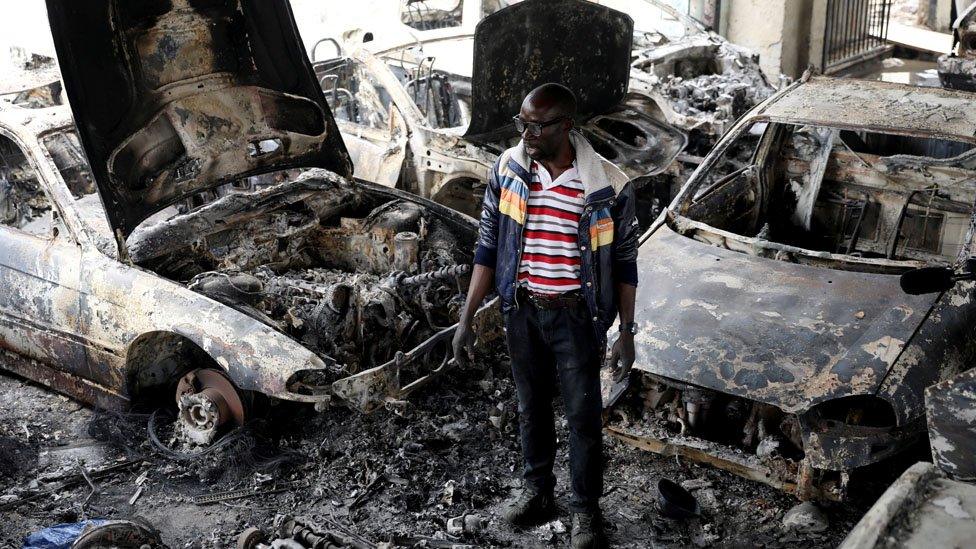
A businessman inspects the damage caused by a fire last week
A fresh bout of mob violence in South Africa has left two people dead.
It began after a speech in the commercial hub Johannesburg by a veteran politician, who was trying to quell tensions over xenophobia.
Mangosuthu Buthelezi was heckled by a rowdy section of the crowd on Sunday, who later clashed with security forces.
Ten people, including two foreigners, were killed in the city last week when mobs attacked foreign-owned businesses.
The trouble led to diplomatic tensions with other African countries, most notably Nigeria.
President Cyril Ramaphosa condemned Sunday's violence, saying the authorities would "not allow sporadic lawlessness and violence to disrupt the safety and livelihoods of millions of South Africans and the majority of foreign nationals in our country who are law-abiding and have the right to conduct their lives and businesses in peace".
On Sunday dozens of men carrying clubs marched in Johannesburg singing "foreigners must go back to where they came from", Soweten Live reported., external
Allow X content?
This article contains content provided by X. We ask for your permission before anything is loaded, as they may be using cookies and other technologies. You may want to read X’s cookie policy, external and privacy policy, external before accepting. To view this content choose ‘accept and continue’.
The crowd headed to Jules Park in Johannesburg where Mr Buthelezi, a former leader of the opposition Inkatha Freedom Party and minister in the country's unity government after the end of apartheid, was due to address them about the recent attacks.
He said he had come as a mediator and said he felt ashamed about the recent violence which he said was tarnishing the name of South Africa across the continent.
But he was heckled throughout and video shared on Twitter shows crowds walking out of the meeting.
Allow X content?
This article contains content provided by X. We ask for your permission before anything is loaded, as they may be using cookies and other technologies. You may want to read X’s cookie policy, external and privacy policy, external before accepting. To view this content choose ‘accept and continue’.
People then targeted cars and buildings, which were set alight, Johannesburg Metro Police Department chief David Tembe told Eyewitness News, external
"I think this is pure criminality because some of the shops that were burned did not belong to the foreigners, it belonged to South Africans," he is quoted as saying.
Last week, police said that they had arrested more than 420 people and the unrest had subsided. The authorities made another 16 arrests after Sunday's trouble, according to a statement from the president.
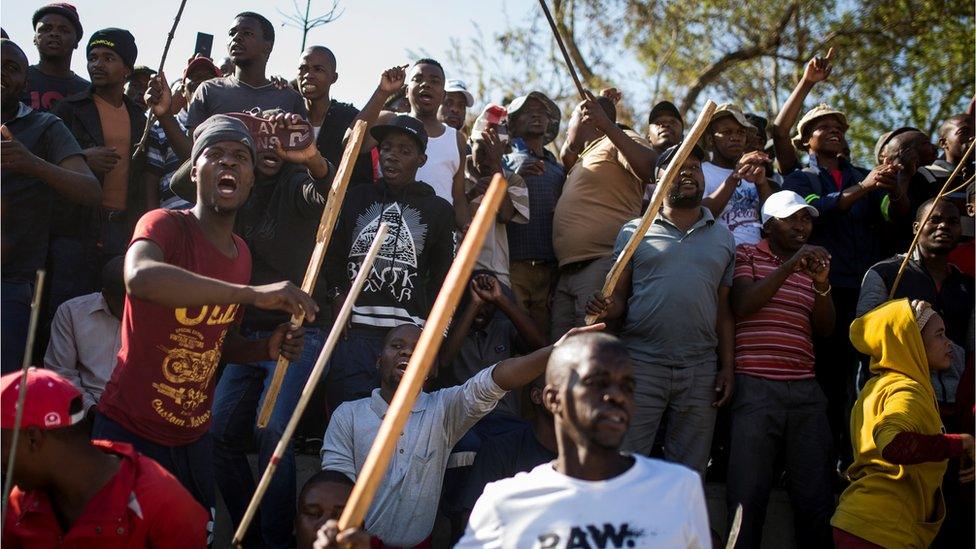
Groups of men also interrupted a speech by the police minister last week
The initial bout of attacks started a week ago after South African lorry drivers staged a nationwide strike to protest against the employment of foreign drivers.
The country has become a magnet for migrants from other parts of Africa because it has one of the continent's biggest and most developed economies.
But there is also high unemployment in South Africa and some people feel foreigners are taking their jobs.
Fake videos stoke tension amid South Africa xenophobic attacks
As the week progressed, people across the continent shared videos on WhatsApp which purported to show violent attacks on Nigerians. But these were denounced as being misleading.
Nonetheless, a diplomatic row ensued with Nigeria's President Muhammadu Buhari sending an envoy to South Africa to "express Nigeria's displeasure over the treatment of her citizens".
- Published6 September 2019
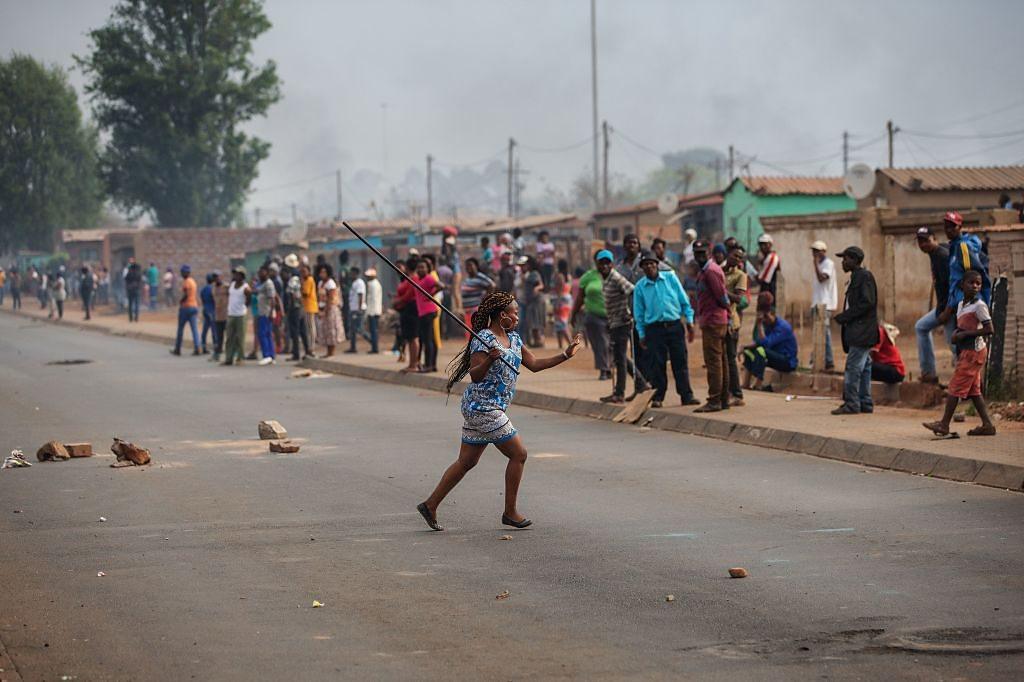
- Published29 August 2019
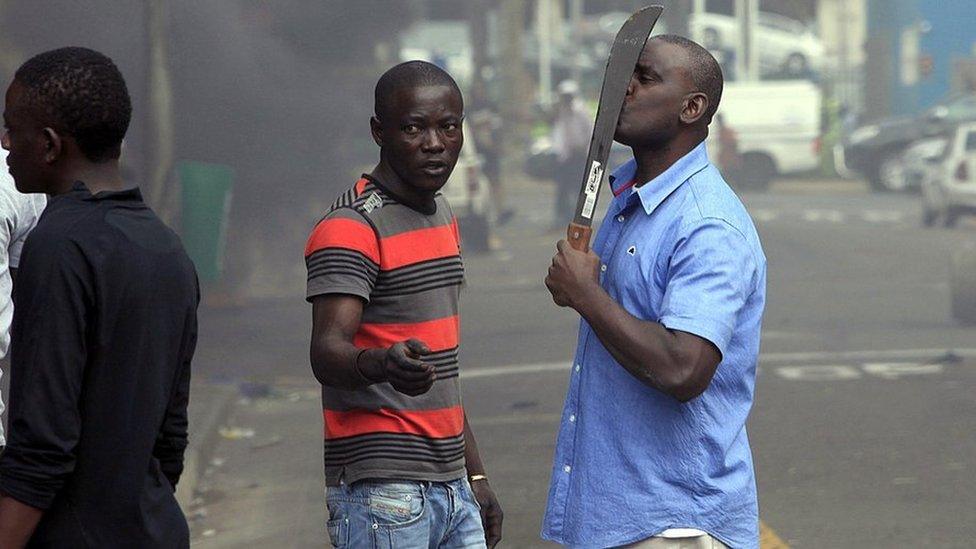
- Published2 October 2019
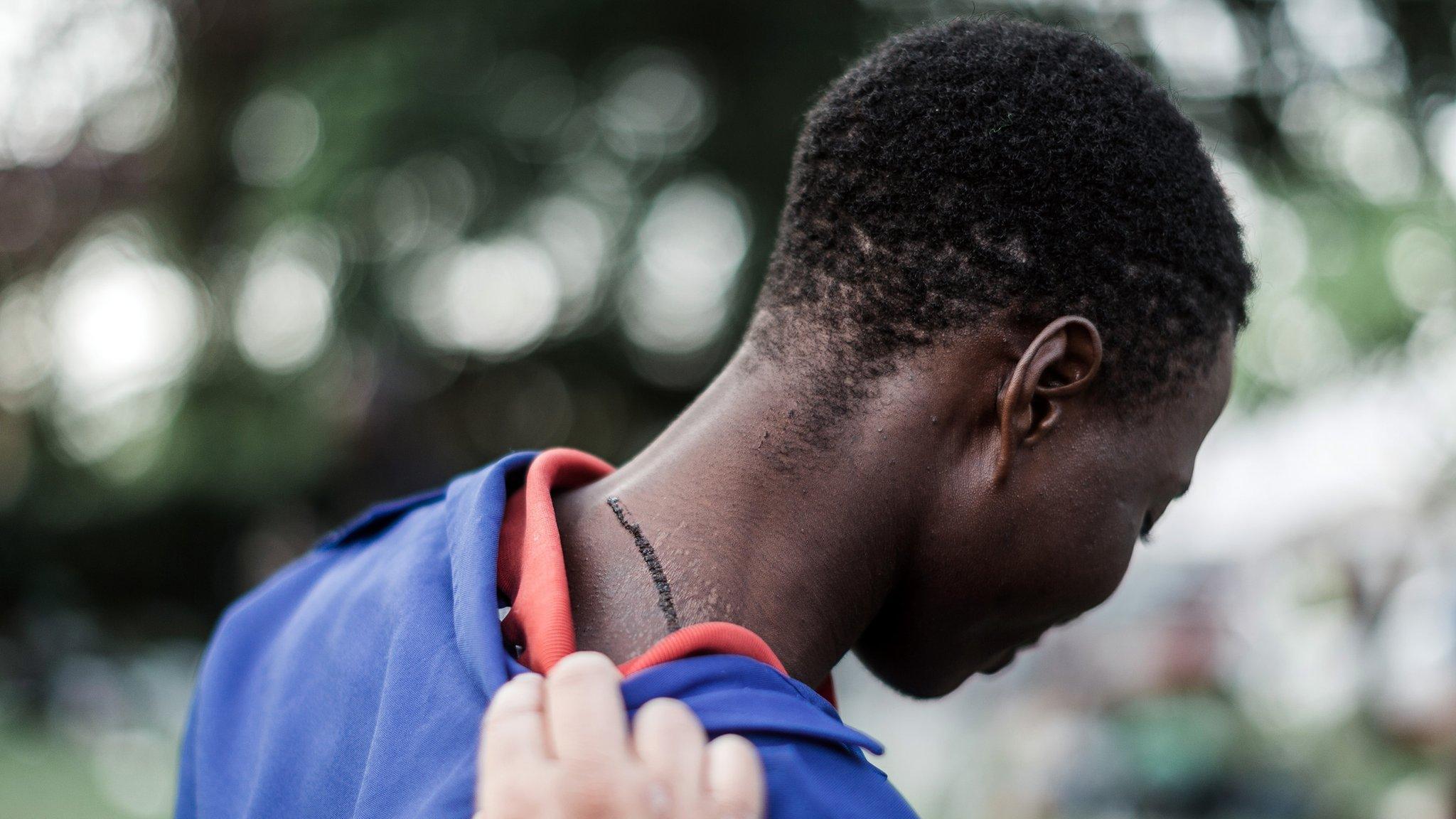
- Published31 March 2019
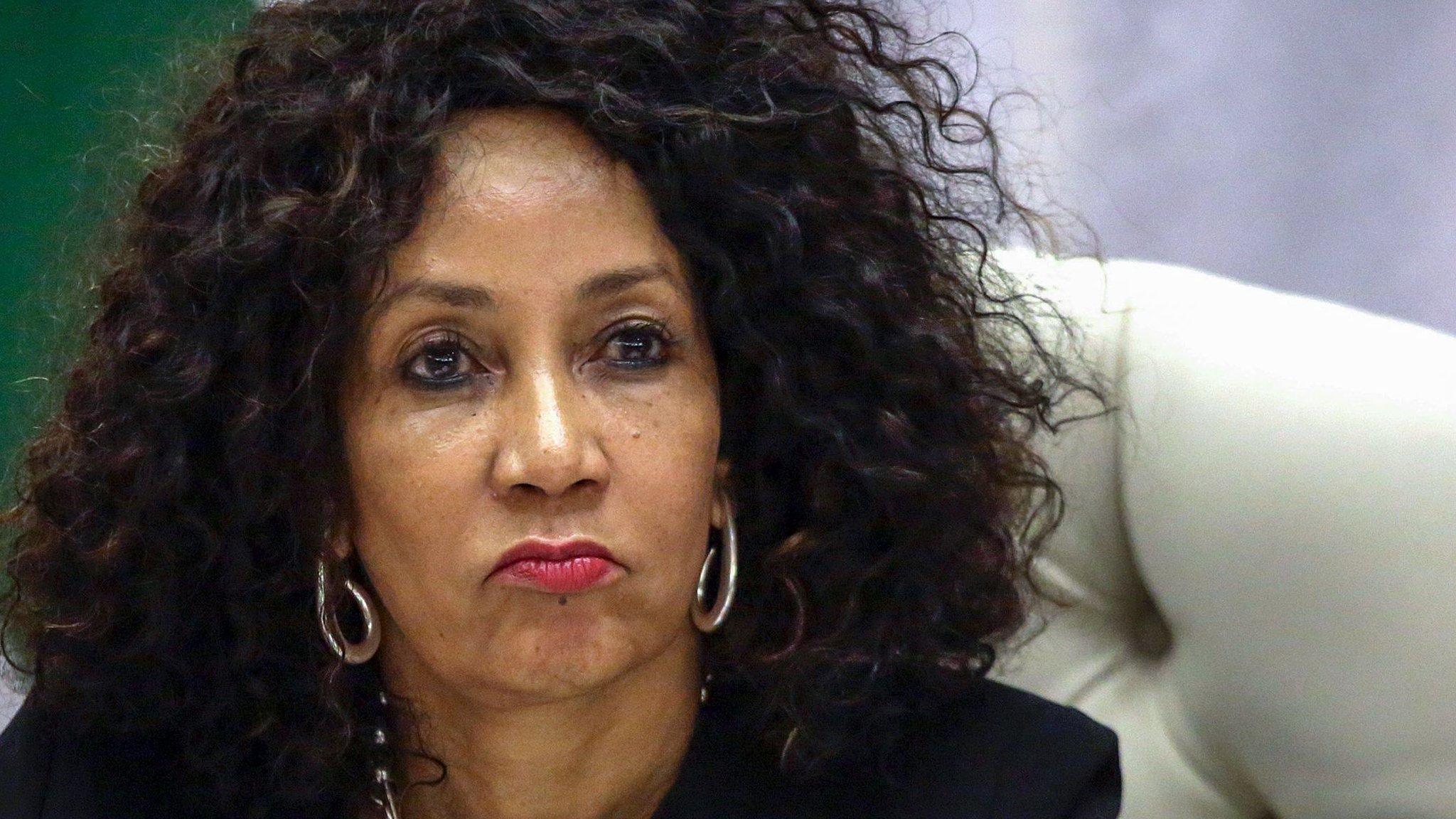
- Published9 July 2024
